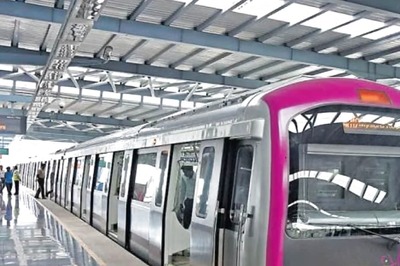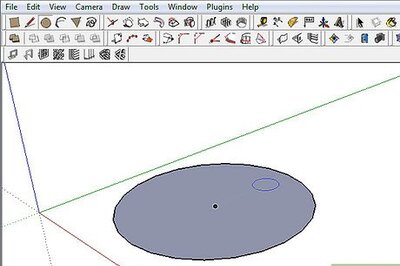
views
New Delhi: Loudspeakers can blare in Mumbai during the Ganapati Visarjan festivities on Tuesday, with the Supreme Court on Monday staying a High Court order banning their use in the state.
The Bombay High Court on September 1 had granted an interim stay to a recent amendment to the Noise Pollution (Regulation and Control) Rules that led to the elimination of 1,573 notified 'silence zones' in Mumbai ahead of festive season.
A bench headed by Chief Justice Dipak Misra and Justices A M Khanwilkar and D Y Chandrachud issued notice to the social activists on a plea of state government and stayed the
September 1 order of high court.
It sought a reply from the activists in favour of the ban within two weeks and restrained the high court from passing any further orders in the matter.
Additional Solicitor General Tushar Mehta, appearing for state government, said the high court has erred in staying the rules which cannot be done.
"If these all India rules are implemented in a literal sense, then you cannot use loudspeakers near a small clinic, school or even court premises which will virtually make the entire country go silent," Mehta said.
Senior advocate C U Singh, appearing for some social activists, said the high court was justified in staying the rules and even the apex court has in the past stayed them. The bench asked Singh as to what will be the impact of lifting of (rpt lifting of) this ban in the state. The senior advocate said then the government will allow the processions during Ganesh Visarjan revelry with loudspeakers being played.
Mehta said if we go strictly by these nationwide rules, then no function can be held even at the Supreme Court lawns. The bench said it will look into the matter.
The high court had held that the amendment was prima facie "unconstitutional" and violated the right to life guaranteed by Article 21 of the Constitution. Its stay order had restored the "position prior to August 10 notification (amending the rules)".
On August 10, the Centre had issued a notification amending the rules, making state governments responsible for specifically notifying silence zones in their jurisdiction. The Maharashtra government, however, decided against immediately notifying existing silence zones afresh, in effect doing away with noise restrictions near schools, hospitals, courts and religious shrines among other locations.
The activists had challenged the amendment in the High Court through PILs, alleging that it violated constitutional rights and was an "appeasement move" ahead of Ganpati and Dahi Handi celebrations when loudspeakers are used liberally.
The amendment also resulted in nullifying a 2016 verdict of the Bombay HC restricting the use of loudspeakers within 100 metres of hospitals, educational institutions, courts and religious places even outside the declared silence zones.
The Maharashtra government had refused to commit to imposing fresh noise norms, saying it was granting permission for use of loudspeakers during Ganpati festival using the previous 1,573 silence zones as "guiding principles."



















Comments
0 comment